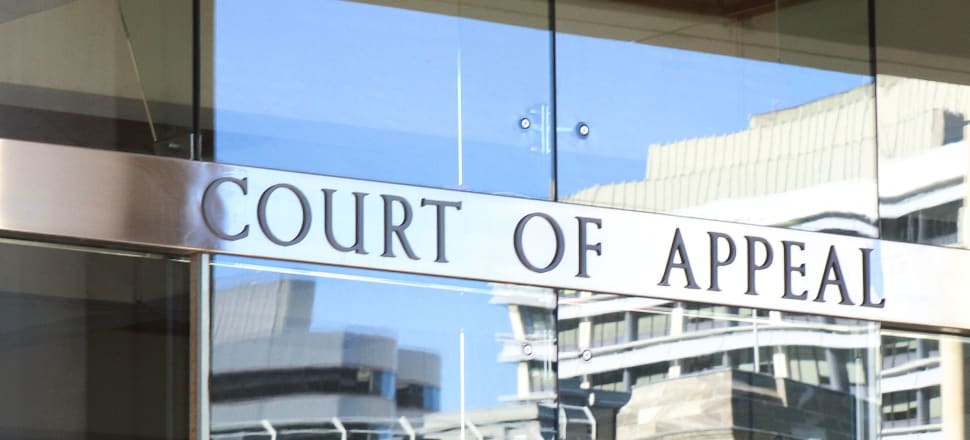
Parents are in the Court of Appeal continuing their fight to prove they should be employed by the government and not their severely disabled children
Two families that both care full-time for their disabled children are once again before the courts in an effort to finalise who their employer is.
Speaking from his Hamilton home, Peter Humphreys apologises for the noise the builders are making in the background - his bathroom renovations have finally begun.
READ MORE: * A humiliating and impenetrable system * New legal bid in disability funding battle
It was the bathroom that sparked this court action for the Humphreys family.
“Sian, my daughter, weighs about 110 kilograms and she needs everything done for her – six or seven nappies changed a day and stuff like that – so we needed a bathroom modification."
An occupational therapist on behalf of the Ministry of Health confirmed a modification was necessary for health and safety reasons – usually something an employer would need to ensure.
But, under the law, Humphreys was employed by his daughter, who has Angelman syndrome and clearly unable to orchestrate a bathroom renovation.
In December the Employment Court ruled the Ministry of Health was his employer and in June he finally got confirmation it would pay for the required changes.
But while he may have won that battle, the war continues.
“It's still about that fundamental thing that my daughter can be my employer, you know, she doesn't have the ability. And if I've got any health and safety issues, where do I actually go?” – Peter Humphreys
This week the Court of Appeal will hear the Director-General of Health’s appeal against its employer status handed out by the lower court.
Humphreys knew the Employment Court decision would be appealed as soon as it was handed down.
“When we took the Atkinson case, they appealed that twice and we eventually won, so I knew from that there would be an appeal for this one.”
The Atkinson case was a group of family carers who fought against the then policy which prevented spouses or family members being paid to care for their disabled relatives.
In January 2010, the Human Rights Tribunal ruled the ministry's policy was unlawfully discriminatory and that decision was upheld by the High Court and the Court of Appeal.
From then the government developed a policy allowing adults with disabilities to employ their parents or resident family members.
But, as Humphreys argued in the Employment Court, that premise was deeply problematic.
The example was given in court of how impractical it was for Sian Humphreys to be considered his employer.
"On 4 February 2021 a letter arrived at the Humphreys' home. It was addressed to Sian. The letter advised Sian that her tax returns were overdue and that prosecution action might follow.
"As Mr Humphreys pointed out, Sian is not able to open a letter. Nor is she able to understand what is written, much less take steps to comply with any tax obligations. I refer to this because it reflects on the practical reality of the situation, and Sian's capacity (if it were otherwise in doubt), to discharge the onerous obligations resting on all employers in New Zealand," the judgment said.
For Humphreys, while having a bathroom he can safely bathe his daughter in helps, it has not fixed the problem.
“It's still about that fundamental thing that my daughter can be my employer, you know, she doesn't have the ability. And if I've got any health and safety issues, where do I actually go?”
Humphreys’ daughter is paid a fortnightly amount which is then used to “pay” her father under the Individualised Funding system. This did come from the Ministry of Health but now comes from the recently established Ministry of Disabled People.
She was also responsible for aspects of employment, including Accident Compensation levies, employment contracts, leave and tax requirements and KiwiSaver; budget management and the quality of the services provided.
"I work like a dog doing the Ministry of Health’s work trying to keep families on an even keel, you know. I take calls at two o'clock in the morning from people who are suicidal." – Jane Carrigan, disability advocate.
At the same time the court will hear an appeal against Christine Fleming, another parent who won the right to be considered an employee of the government and not her son.
Disability advocate Jane Carrigan said both families had spent years trying to get a resolution through the courts, and hearing them both together was pragmatic.
“Christine Fleming's decision was handed down in May 2021, and we'd already waited nearly three years to get into the court.
“I've got another 20-odd families sitting in a holding pattern in the [Employment Relations Authority], and nothing's moved since I started filing back in 2019. So, you know, it's just, it's pragmatics basically."
Carrigan has been, and continues to be, a staunch advocate for families navigating the health system when it comes to caring for those with disabilities.
She has also filed proceedings in the ERA claiming the Ministry of Health is technically her employer as well.
“I work like a dog doing the Ministry of Health’s work trying to keep families on an even keel, you know. I take calls at two o'clock in the morning from people who are suicidal so I am, in every effect, a case manager for the families that I work with and some of them really high maintenance.
“And it's not something I can say I'll devote a couple of hours to each week. I literally work seven days a week, and most days, I would work 12 hours if not more.”
The appeal is set down for three days.







